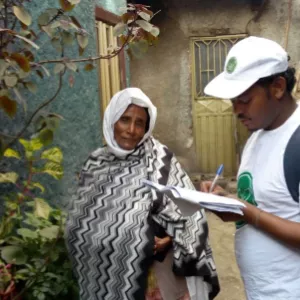Can phone surveys be used in standard poverty measurement? Evidence from Ethiopia
by Alan de Brauw, Kalle Hirvonen, Gashaw T. Abate, and Abdulazize Wolle OPEN ACCESS | CC-BY-4.0 Surveys are a key method for social scientists to gather data on living standards. Prior to the COVID-19 pandemic, such surveys in low- and middle-income countries (LMICs) were typically conducted in person; phone surveys were rarely used (one exception was the World Food Programme in

Can phone surveys be used in standard poverty measurement? Evidence from Ethiopia
Surveys are a key method for social scientists to gather data on living standards. Prior to the COVID-19 pandemic, such surveys in low- and middle-income countries (LMICs) were typically conducted in person; phone surveys were rarely used (one exception was the World Food Programme in some of its Vulnerability Analysis and Mapping (VAM) exercises). But for a period starting with the pandemic’s early stages in 2020, in-person surveys became impracticable—even as the need for information on the household impacts of an unfolding global crisis became more urgent.
At that point, many researchers turned to phone surveys to monitor living standards. The World Bank conducted over 100 phone surveys; Innovations for Poverty Action conducted over 50 phone surveys as part of its RECOVR program; and IFPRI conducted phone surveys in a number of countries (Papua New Guinea, Myanmar, India, Nepal, China, Nigeria, Ghana, Kenya, and Ethiopia, among others).

